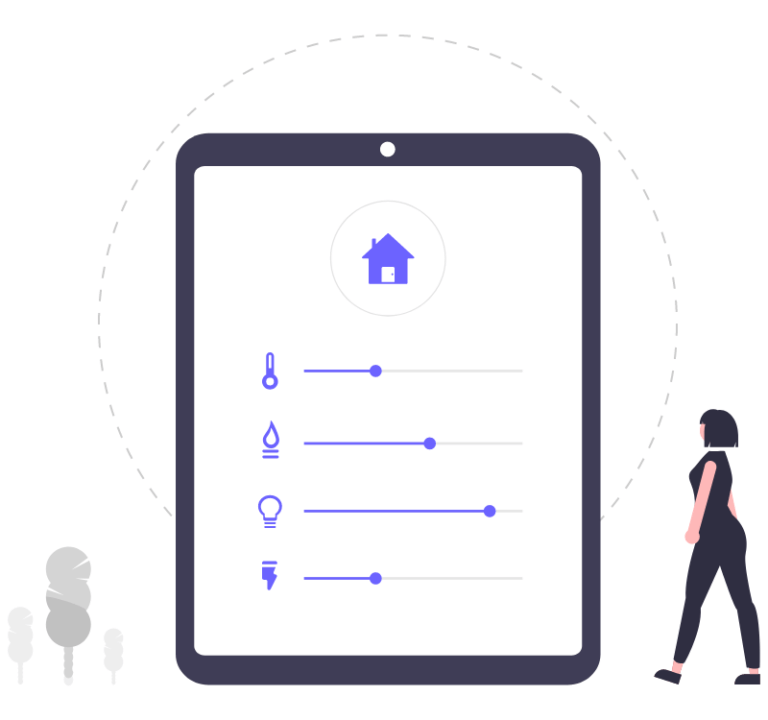How Startup companies can benefit from European Energy Crisis?
The world entered a global energy crisis in 2021. The European energy market is now caught between a rock and a hard place in 2022, with short-term gas prices five times higher than the same period last year. Electricity, natural gas, and gasoline prices were rising. The supply fails to keep up with post-pandemic demand. Prices then briefly reaches record highs. As a result, governments and venture capitalists are looking at clean energy technology (cleantech) startup companies as a viable alternative. Investing in innovative energy-efficient solutions is a risky but effective course of action. Funding high-impact cleantech projects will mitigate the risks of price increases in three years with 40% cost savings. Startups will also get a payback period of no more than a year.
LoreMine Technologies can assist you in developing solutions to assist businesses in managing the energy consumption. We can collect data from sensors, smart meters, and other sources, create mathematical formulas for analyzing, forecasting, and tracking energy consumption, and create user interfaces that display real-time data. You may share your project ideas, we’ll contact you to discuss the requirements.
As a renowned Web and Mobile Application Development Company in India, LoreMine Technologies provides high-quality solutions and have expertise in various technologies such as
- Flutter Development
- MeteorJS Development
- NodeJS Development
- VueJS Development
- ColdFusion Development
- Kotlin Development
- Android Development
- IOS Development
- PHP Development
and many more.
Energy Crisis: An Excellent Opportunity for Start-up Businesses

Increase your success by expanding your network
Collaboration is essential for increasing the chances of success. A challenge of the magnitude of the energy transition cannot be addressed individually. Established utilities and energy companies require the breakthrough technologies and outside-the-box thinking of these agile startups, and the startups require assistance from them as well. For example, the high-profile exit from Future Energy Ventures to E.ON of gridX, the leading provider of smart grid intelligence in the energy industry, in 2021 has opened up opportunities for the startup to maximise the potential of its platform and access new value chains in this rapidly evolving energy market.
An advantage in competition
Startups, by definition, position well to thrive in a crisis, in the world of energy, and elsewhere. They can be nimbler and quicker to seize opportunities. One only needs to look back to the Covid-19 pandemic to see how quickly startups and young businesses adapting to the situation. Most are more energy efficient than their more famous competitors. Some of whom have seen their production profit margins and bottom lines squeezed, exacerbated by higher energy prices. With the link between sustainability and profitability becoming clearer, incumbents must move quickly to keep up and remain relevant – or risk being left behind. One way to do so is to capitalize on the enormous business opportunity present by the energy transition’s startups.
The tipping points
As businesses and households seek ways to save energy and reduce bills, we are on the verge of a massive scaling-up and acceleration of clean energy. Meanwhile, governments are increasingly turning to renewables to reduce their reliance on fossil fuels and improve overall energy security. According to an IEA report, global renewable electricity capacity is expected to increase by more than 60% from 2020 levels by 2026, reaching over 4 800 GW – the current combined global power capacity of fossil fuels and nuclear. Based on this trajectory, the ongoing energy price shock, and the rush for ESG-driven investing, the time to be a clean energy start-up has never been better.
Where Governments Cannot Go, Entrepreneurs Can
Governments are constrained by their extensive set of policies and procedures. While this is necessary, it also implies that they are less agile and flexible than entrepreneurs. Even in the best-case scenario, governing bodies can take 12-24 months to draught, approve, and implement new policies. In most cases, everyone takes much longer to agree on anything, further slowing the process.
start-ups are not bound by democratic red tape, so they have more leeway in developing “out-of-the-box” solutions to the energy crisis. The solution to the energy crisis can be implemented if governments and startups collaborate.
Prepare for future renewable energy challenges with technology

As you can see, the rapidly changing energy landscape presents a number of challenges as well as enormous opportunities. We can conclude that the main goals of energy technology innovation are decarbonization, decentralisation, and digitalization of energy resources after analysing Europe’s energy crisis, as well as a number of other issues that emerging smart energy startups are already addressing.
Furthermore, the potential for energy technology startups and companies is rapidly expanding, as an evidence by rising renewable energy generation in residential, commercial, and industrial buildings, as well as widespread use of smart energy management systems and other innovations.
